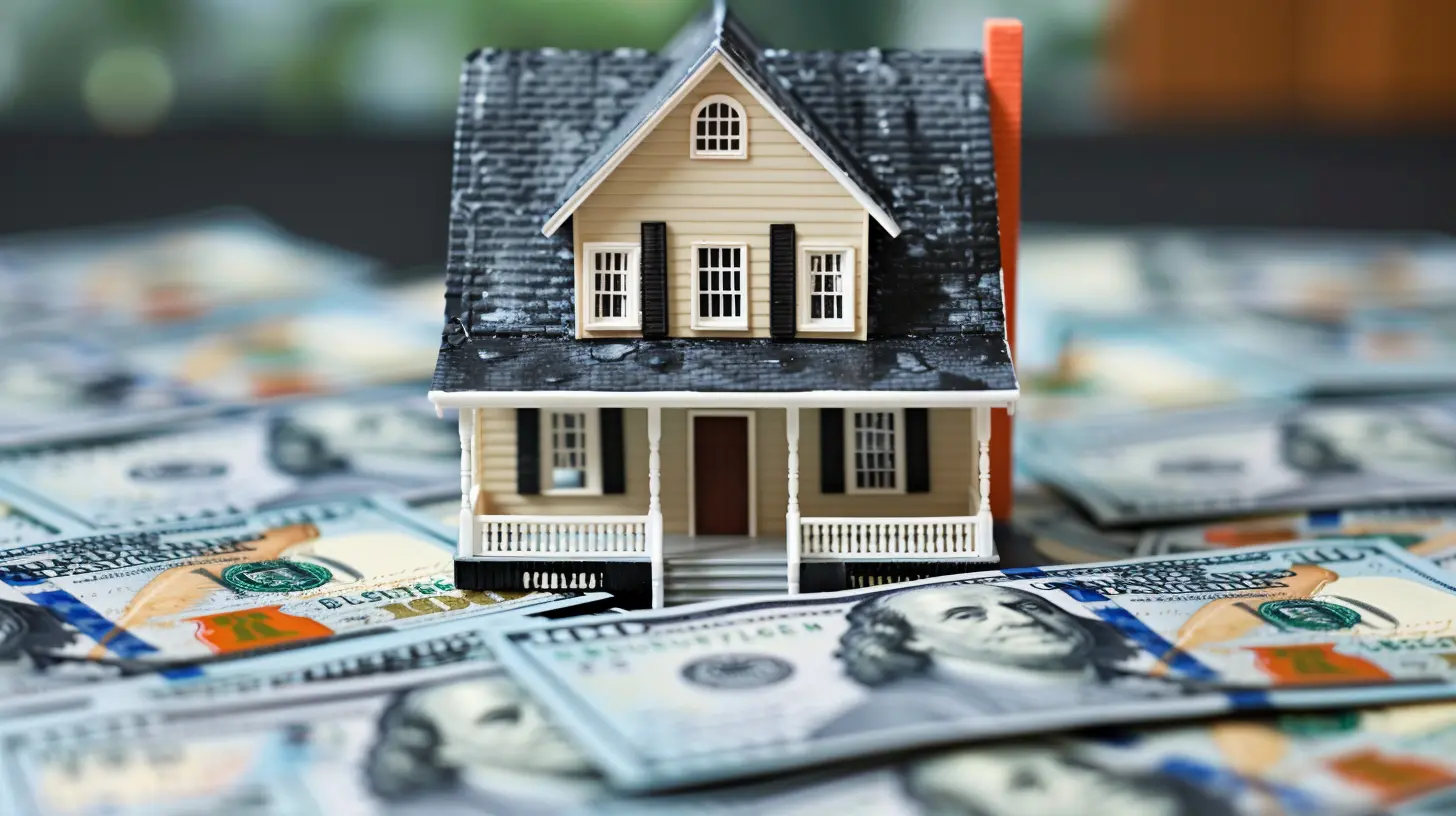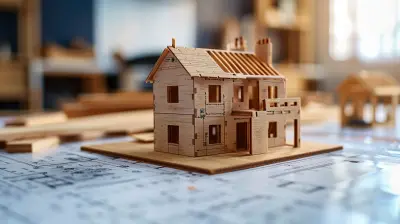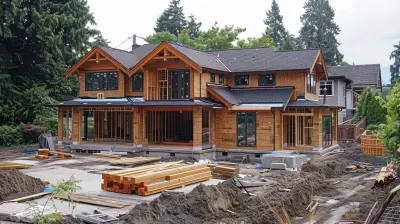7 March 2025
Homeownership is a significant milestone, and with it comes one of the most rewarding financial perks: home equity. But how exactly do you calculate your home’s equity value, and why is it so important? Whether you're considering refinancing, taking out a home equity loan, or simply curious about your financial standing, understanding your equity is key. So, grab a cup of coffee, and let’s break it down step by step.
What is Home Equity?
Before we get down to the nitty-gritty of calculations, let's first understand the concept of home equity. Picture your home as a pie. The portion of the pie you own outright (without any debt) is your equity. It’s essentially the difference between your home’s current market value and what you still owe on your mortgage. Simple, right?For example, if your home is worth $400,000 and you owe $250,000 on your mortgage, your equity is:
$400,000 - $250,000 = $150,000
That $150,000 is the portion of the home you truly “own.” As you continue making mortgage payments or as your home’s value rises, your equity grows—a bit like watering a plant and watching it flourish.
Why Does Home Equity Matter?
Okay, so you know what equity is. But why should you care? Well, for starters, it’s one of your greatest financial assets. Here’s why:1. It Builds Wealth Over Time: Unlike renting, owning a home allows you to build equity, which can grow as property values increase.
2. It’s a Financial Safety Net: Equity can act as a cushion in emergencies. Need cash for unexpected expenses? You can tap into your equity through loans or lines of credit.
3. It Gives You Borrowing Power: Lenders often offer lower interest rates for loans based on equity. It’s like having a good credit score but better.
4. It’s Your Ticket to Retirement Planning: Planning to downsize in the future? Your equity can make it happen.
In short, home equity is like the VIP pass to financial flexibility.
How to Calculate Your Home’s Equity Value
Now, let’s dig into the actual process of calculating home equity. It’s not rocket science, but a few steps will help you get a precise figure.1. Determine Your Home’s Current Market Value
This is the starting point. The market value of your home is what it would sell for in today’s real estate market. Keep in mind that this isn’t the same as what you paid for the house initially—values shift over time based on market trends, location demand, and even your home’s condition.How to Find Your Home’s Market Value:
- Hire a Professional Appraiser: This is the most accurate method, but it may cost a few hundred bucks.- Compare Similar Homes (Comps): Look at recent sales of homes similar to yours in your neighborhood. Online tools like Zillow or Realtor.com can help.
- Speak to a Realtor: Realtors often provide comparative market analysis (CMA) for free. It’s like having a home value cheat sheet.
Once you have a number, write it down. This will be part of your equity calculation.
2. Figure Out Your Outstanding Mortgage Balance
Next, log into your mortgage account or check your most recent statement to see how much you still owe. This includes the principal balance and any other liens on the property.3. Do the Math
Now that you have both numbers, use the formula:Home Equity = Current Market Value - Outstanding Mortgage Balance
Let’s say your home is valued at $450,000, and your mortgage balance is $300,000:
$450,000 - $300,000 = $150,000
Boom! You’ve got $150,000 in equity. Congratulations—you just calculated one of your biggest financial assets.
But wait—there’s more to this than meets the eye.
Tips to Maximize Your Home Equity
Once you’ve calculated your equity, you might be wondering, “How can I increase this number?” The good news is that there are plenty of ways to boost your home equity value over time.1. Pay Down Your Mortgage
This is the most straightforward approach: the more you pay off, the more equity you build. Consider making extra payments toward your principal whenever possible. Even an additional $100 a month can make a significant dent over time.2. Invest in Home Improvements
Not all home upgrades give you a return on investment, but strategic improvements can boost your home’s value. Think kitchen remodels, bathroom upgrades, or adding energy-efficient features. Just be sure to avoid over-improving—spending $100,000 on a pool in a neighborhood where homes sell for $200,000 might not be the best move.3. Stay Put for a While
Real estate values tend to increase over time. By simply staying in your home and riding the wave of appreciation, you can grow your equity without lifting a finger. Patience, as they say, is a virtue.4. Refinance Carefully
If you can snag a lower interest rate through refinancing, do it. Lower rates mean more of your monthly payment goes toward the principal, speeding up equity growth. Just watch out for hefty closing costs or extending the loan term.Common Myths About Home Equity
When it comes to home equity, there’s no shortage of misconceptions. Let’s debunk a few:Myth #1: You Need to Sell Your Home to Access Equity
Not true. Home equity loans, lines of credit (HELOCs), or cash-out refinances allow you to tap into your equity without selling.Myth #2: Equity is Always Guaranteed to Increase
While home values usually appreciate over time, market downturns can cause prices to drop. Equity isn’t a promise—it’s a snapshot of your home’s value at a given time.Myth #3: Home Equity Loans Are Free Money
Far from it. Tapping into equity means taking on debt. It’s a useful tool, but not something to be done lightly.When to Use Your Home Equity (And When to Skip It)
Accessing your equity can be a lifesaver, but it’s not always the best choice. Here’s a quick guide:Good Uses for Equity:
- Home renovations that increase property value.- Paying off high-interest credit card debt.
- Funding major life expenses like college tuition.
Bad Uses for Equity:
- Splurging on a luxury car or vacation.- Risky investments or gambling.
- Covering everyday expenses.
Remember, your equity is an asset—not an all-you-can-eat buffet.
Final Thoughts
Understanding and calculating your home’s equity value is more than just crunching numbers—it’s about taking control of your financial future. Think of it as building a house of financial security, brick by brick. The more you nurture and grow your equity, the greater the rewards down the line.So, take the time to calculate your equity, think strategically about how to use it, and watch your financial foundation grow stronger. After all, your home is more than just a roof over your head—it’s your financial powerhouse.












Zephyris Price
Calculating your home’s equity can feel daunting, but remember, it’s an empowering step towards your financial future. Take your time, and don’t hesitate to seek guidance. You’re not alone in this journey, and every step forward matters.
April 5, 2025 at 2:33 AM